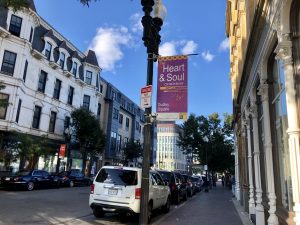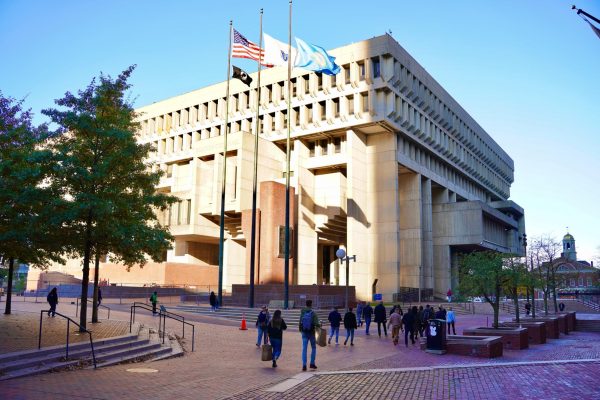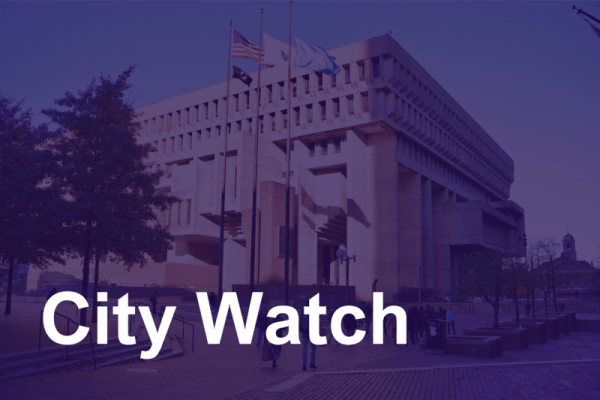Cancelling special mayoral election and prioritizing the vaccine for teachers among issues discussed by city council
As Mayor Marty Walsh nears his departure from Boston, city councilors discussed cancelling the special mayoral election, citing safety concerns about holding four different elections in the time of a pandemic. In their weekly meeting on Wednesday via Zoom, the council also discussed prioritizing childcare providers and K-12 educators in the COVID-19 vaccine distribution as they have to return to work.
Special law regarding cancellation of the special election for mayor in 2021 – Docket #0155
The city of Boston might be holding four mayoral elections in 2021, including a special, the regularly scheduled November contest, and preliminary elections preceding each — in a five-month span. According to reports from Councilor Lydia Edwards, chair of the committee on government operations, the majority of residents who testified in a Jan. 26 hearing wanted to dispense with the special election. There were “copious amounts of public comments,” including individual residents as well as voter advocacy groups like MassVOTE, the League of Women Voters, and the Massachusetts Voter Table, Edwards said.
“Overall most people found that the safety, the fact that we have a pandemic, and that we could be disenfranchising voters far outweighed the concerns with following the exact rules as written,” said Edwards.
If Mayor Marty Walsh, tapped by the Biden administration to serve as their new labor secretary, vacates office before March 5, the Boston city charter mandates that a special election must be held to choose his predecessor. Councilor Ridcardo Arroyo, who advocated for cancelling the special election, said allowing four elections to occur for the same mayoral seat in one year during a pandemic is both fiscally irresponsible and a threat to the health of Boston residents.
However, those who oppose cancelling the special election cite voter disenfranchisement and a conflict of interest due to the fact that three of the councilors, who vote on the docket, are running for mayor. Councilor Annissa Essaibi-George, a mayoral candidate for the fall, abstained from voting on the docket after stating to the Boston Globe last week that she thought it would be inappropriate.
Docket #0155 was accepted and passed in a new draft, and will now go to the state legislature for approval.
Special law regarding the Boston Landmarks Commission – Docket #0296
Councilors Bok and Breadon want to make a minor change to legislation that regulates the Boston Landmark Commission, which they say will have a major impact on historic sites meaningful to Boston residents.
Massachusetts state law says that landmarks have to be of special importance to both the city and state or the nation. This limits the ability to preserve historic sites that are meaningful to Boston neighborhoods, said Bok. This home rule petition would make a minor change to the language, changing an “and” to an “or,” allowing Boston neighborhoods to pursue the landmark preservation process to anywhere that is important to the city or state.
Bok, a professional historian in addition to her city council tenure, said that this will help preserve landmark buildings that are important to local communities.
“When you think about what it really means to preserve history, a lot of times it’s landmarks in our communities that first tell people that history,” said Bok. “This would help us honor history that includes all Bostonians, not just white, affluent, well-known historical figures and sights.”
The docket was referred to the committee on government operations.
Order for hearing on services for women veterans – Docket #0300
Councilor Ed Flynn said he wants to continue the discussion on how veteran organizations and VA hospitals can offer gender-specific services for female veterans. According to Flynn, women are 20% of military personnel and 10% of the veteran population today, but they don’t receive the support they need from military services.
While Congress is currently attempting to address these issues through legislation such as the Deborah Sampson Act, which would require the VA to offer primary care for female veterans and counseling for victims of sexual trauma, Flynn wants to address the issue locally. He and Councilor Edwards have worked on this issue together for three years, he said, as she is the daughter of a female veteran and her experience is critical to the issue.
Edwards said that this hearing order continues the conversation on how to create inclusive military care not only for women, but people of color, transgender military members, and other marginalized groups.
“People should be able to fight in their fuller selves and that’s what this hearing order is about,” she said.
The docket was referred to the committee on veteran and military affairs.
Prioritizing childcare providers and K-12 educators in COVID-19 vaccine distribution – Docket #0304
Councilors Michelle Wu and Ansissa Essaibi-George called on Massachusetts Governor Charlie Baker’s administration to prioritize educators in receiving the COVID-19 vaccine, as they push for more students to return to the classroom. According to Wu, the state’s vaccine prioritization schedule leaves teachers waiting, even if they have already returned to work in-person.
”We must ensure that there’s an equitable distribution process that recognizes the role of our essential workers, and includes the importance and the foundation of schools,” said Wu.
According to Essaibi-George, vaccination for teachers is a critical component of getting students back in the classroom. Both councilors called on the Baker administration to make the vaccine available to K-12 teachers immediately.
Councilor Kenzie Bok said it’s important to recognize that approximately half of the city’s employees are teachers, citing about 9,000 teachers out of the city’s 18,000 employees. This is essential work, she said, but the decision ultimately lies at the state house.
Councilors Liz Breadon and Andrea Campbell called for the docket’s language to be amended to include early childhood educators, not just K-12 teachers. According to Campbell, these educators are especially vulnerable, since most of these providers are women of color. The docket’s language was amended to be inclusive of other pre-K educators, to ensure that early education and childcare providers are included in this request to amend the vaccination schedule at the state level.
The substituted language was amended unanimously by the council, and the docket was then passed unanimously.
Order for a hearing on implementation of police reform measures – Docket #0307
Councilors Campbell, Mejia, and Arroyo brought recommendations from the Boston Police Reform Task Force and the Massachusetts State Police Reform Bill to be discussed in a series of hearings with the public. These recommendations include measures for increased transparency and accountability within the Boston police department, and according to the councilors, implementation is a critical next step that Boston residents need a voice in.
Campbell said that this docket represents a series of hearings designed to track progress and allow all councilors to participate in the conversation, as well as implement a civilian review board for the police department. Major steps have been taken in the last year, according to Campbell, including creating the Office of Police Accountability and Transparency, civilian review board, and internal affairs oversight panel for the police department, but many of these new policies have yet to be implemented.
According to Mejia, Bostonians were the critical force behind these reforms.
“While it’s easy for local elected officials to take credit for a lot of the accomplishments of 2020, it was the people who led the charge,” she said. “We just followed their leadership and committed to the work of police reform.”
Accountability was a key piece of this discussion, especially regarding violence against elected officials in the D.C. Capitol last month. The councilors raised questions about allegations of BPD officers and their participation in the insurrection, and said that the measures discussed for implementations in these hearings will ensure that all officers are held to the highest standards of conduct.
”We should want transparency, accountability, equity, diversity, and justice in all of our city departments, and there’s work to do with respect to that,” said Campbell.
The docket was referred to the committee on public safety and criminal justice.








